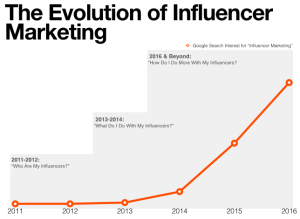The Unveiling Shift: Influencer Marketing’s Evolution Beyond Celebrities
In recent years, influencer marketing has undergone a significant evolution, shifting away from the traditional reliance on celebrities to a more diversified approach. This evolution can be attributed to the rise of micro and nano influencers, individuals with smaller but highly engaged audiences. Unlike celebrities, these influencers often have a niche focus, allowing brands to target specific demographics with greater precision. Micro influencers typically have follower counts ranging from 10,000 to 100,000, while nano influencers may have even fewer followers, often in the range of 1,000 to 10,000.
The appeal of micro and nano influencers lies in their ability to foster genuine connections with their audience. Their followers view them as relatable and authentic, as they often share personal experiences and maintain a more direct and interactive relationship. This authenticity resonates well with consumers, creating a sense of trust that is crucial for effective marketing. Brands have recognized the value of these authentic connections, realizing that smaller influencers can often generate higher engagement rates and drive more meaningful conversations around their products or services.
experiences and maintain a more direct and interactive relationship. This authenticity resonates well with consumers, creating a sense of trust that is crucial for effective marketing. Brands have recognized the value of these authentic connections, realizing that smaller influencers can often generate higher engagement rates and drive more meaningful conversations around their products or services.
Moreover, the shift towards micro and nano influencers aligns with changing consumer behaviors. Modern audiences are increasingly skeptical of traditional advertising methods and are more likely to trust recommendations from individuals they perceive as peers. Collaborating with influencers who have a dedicated and responsive following allows brands to tap into this trust and leverage it for promotional purposes. This shift also reflects a desire for more personalized and targeted marketing strategies that cater to specific interests and lifestyles.
As brands seek to create more genuine connections with their target audiences, they are also placing a greater emphasis on transparency and ethical practices in influencer partnerships. The authenticity of the influencer must align with the brand’s values to ensure a seamless and credible collaboration. This focus on authenticity is transforming influencer marketing from a transactional exchange of services into a more strategic and relationship-driven approach.
In conclusion, the evolution of influencer marketing is marked by a departure from celebrity-centric campaigns to a more diversified and authentic landscape. Micro and nano influencers have emerged as powerful players in this space, providing brands with the opportunity to connect with niche audiences on a more personal level. The emphasis on authenticity and genuine connections reflects a broader shift in consumer preferences towards more personalized and trustworthy interactions, reshaping the dynamics of influencer-brand relationships. As the influencer marketing landscape continues to evolve, brands will likely continue to prioritize authenticity and engagement over sheer follower counts.







